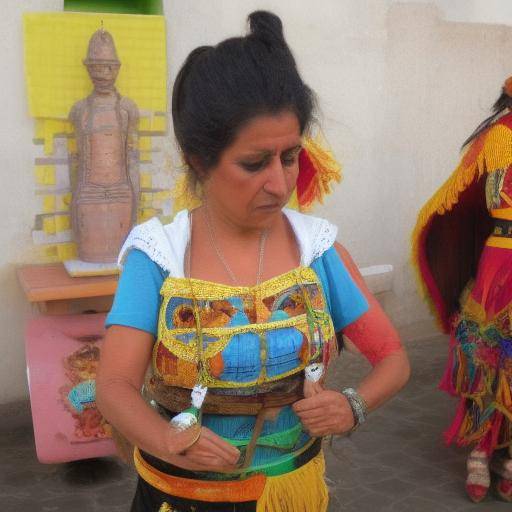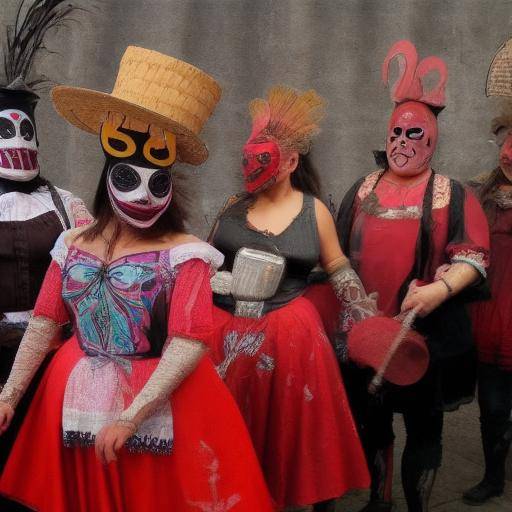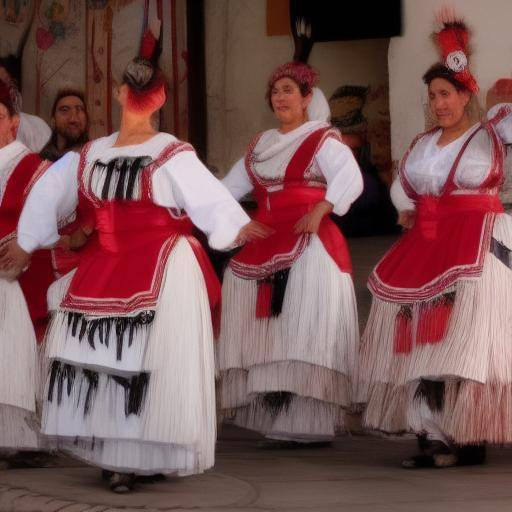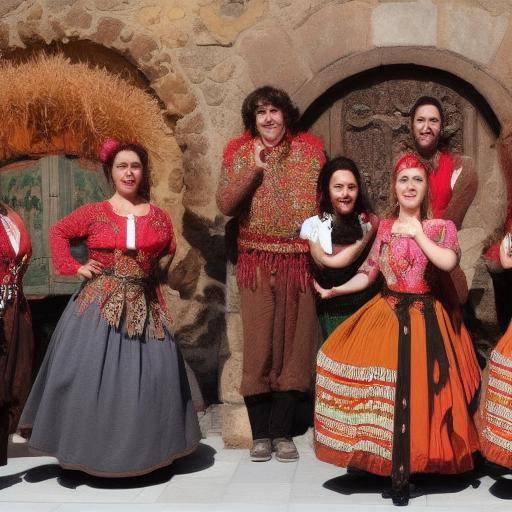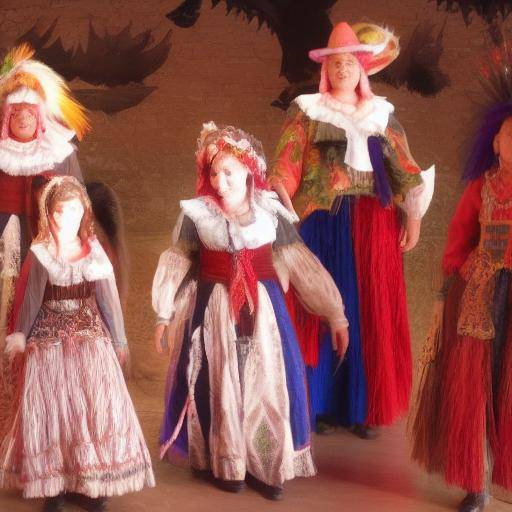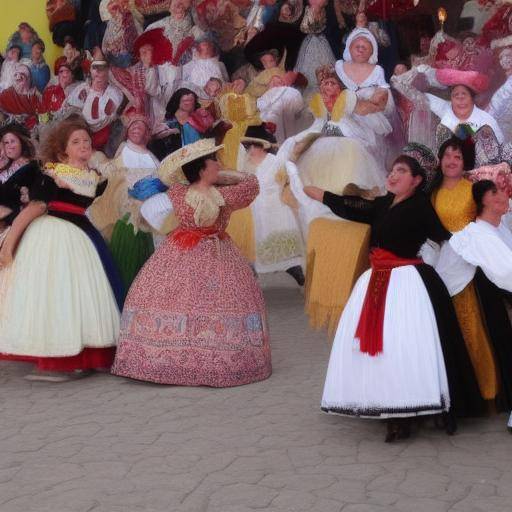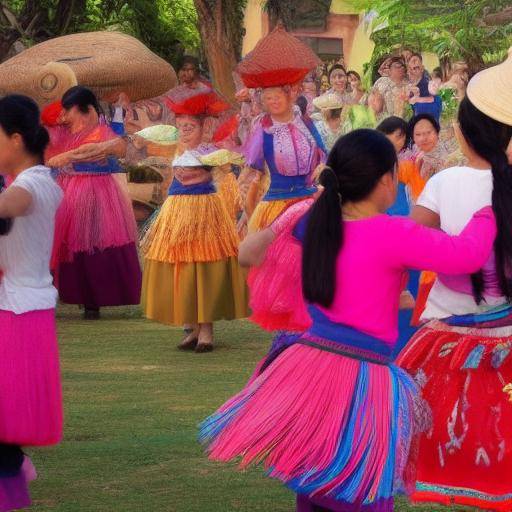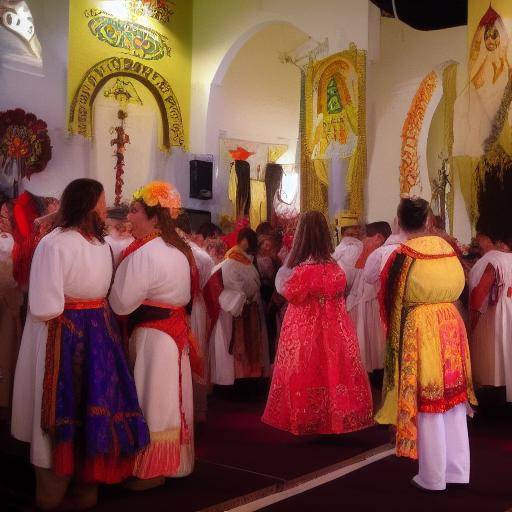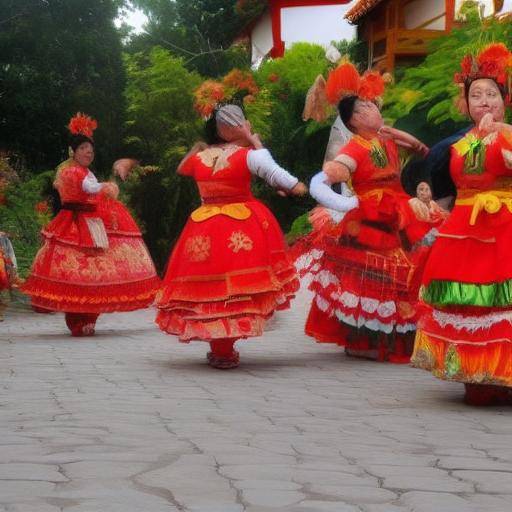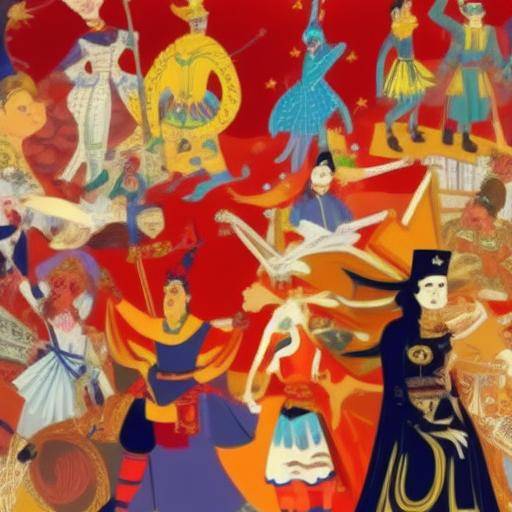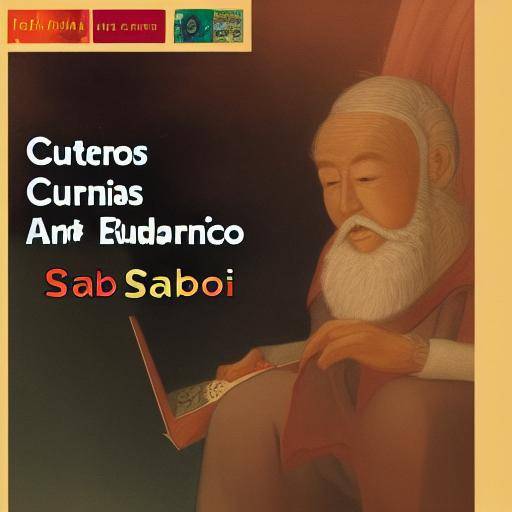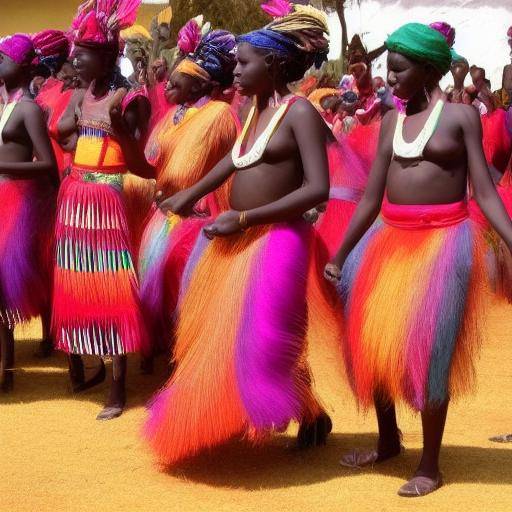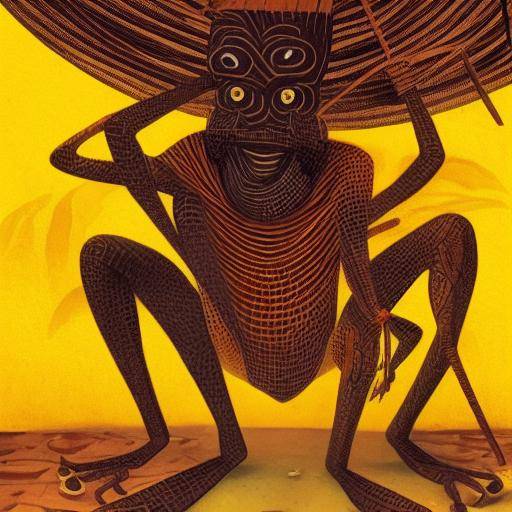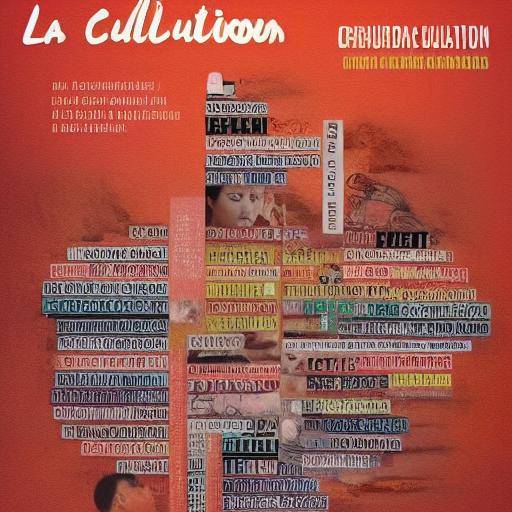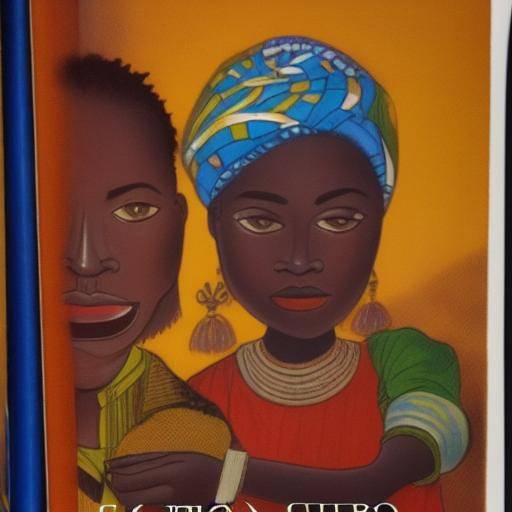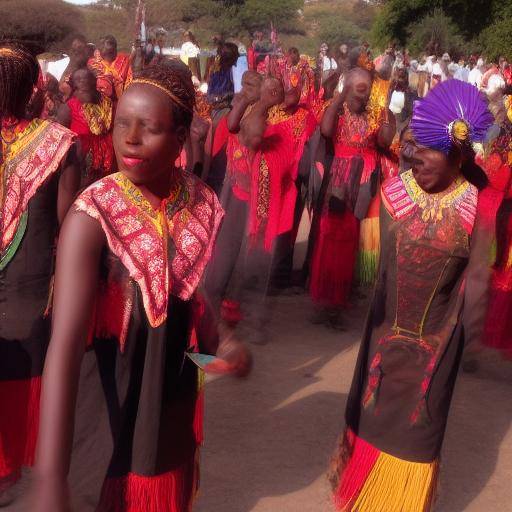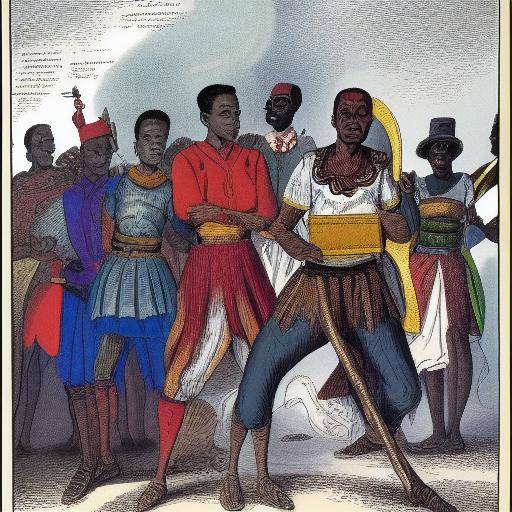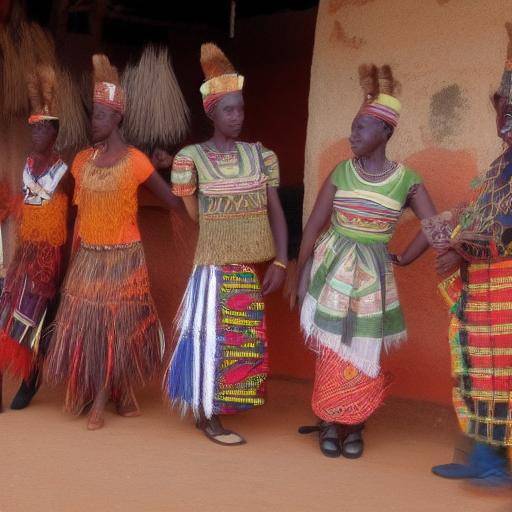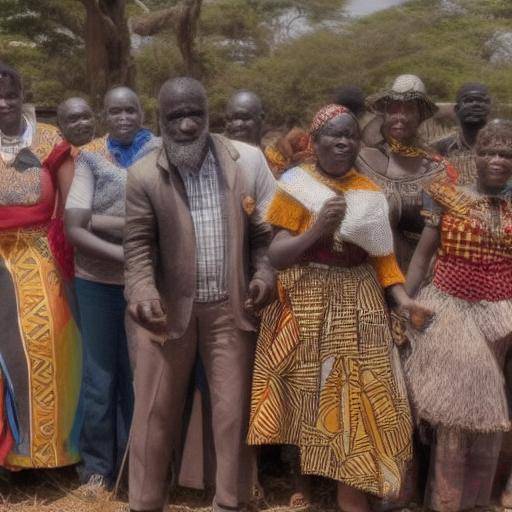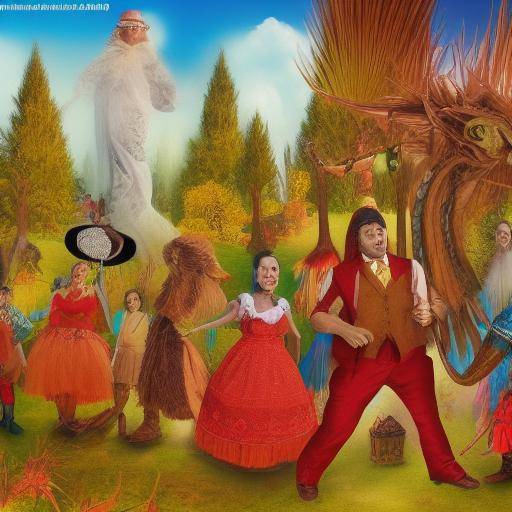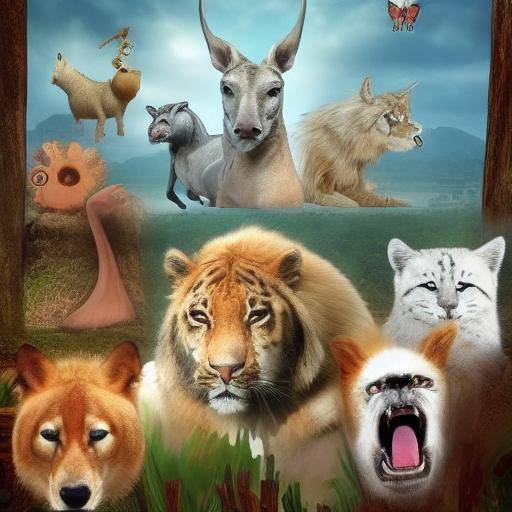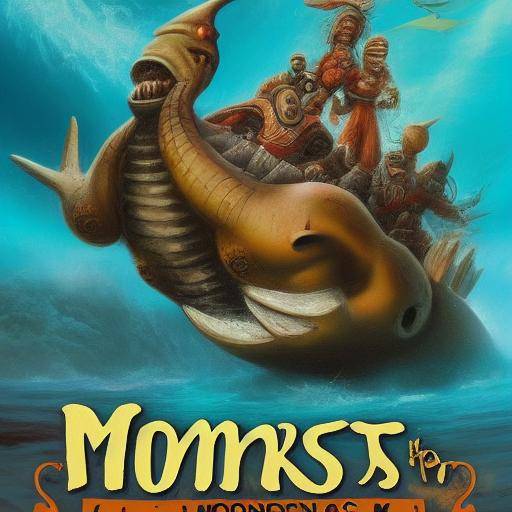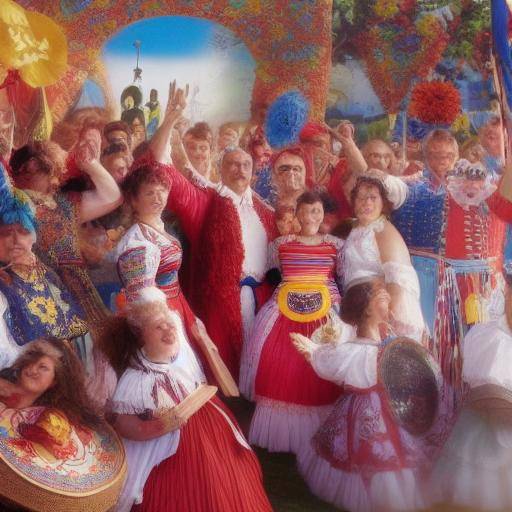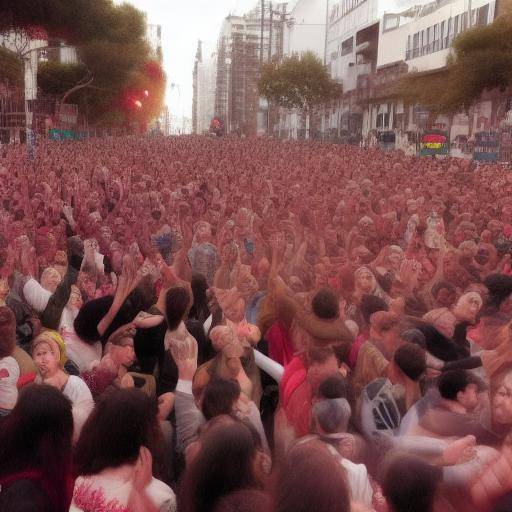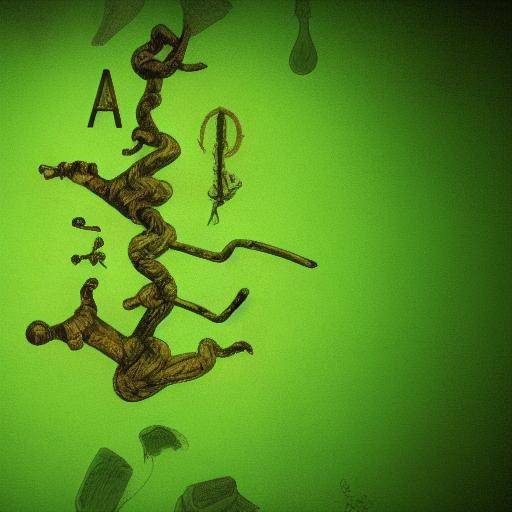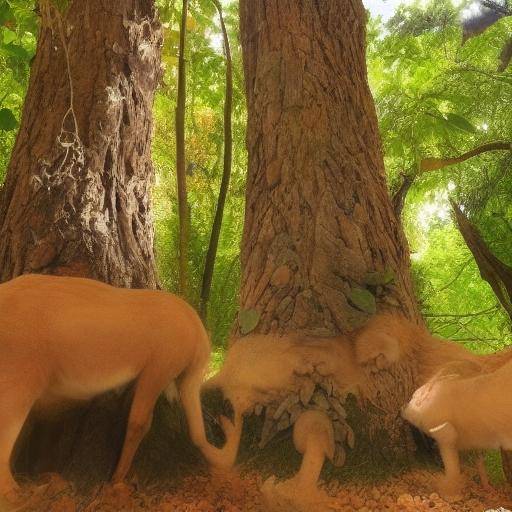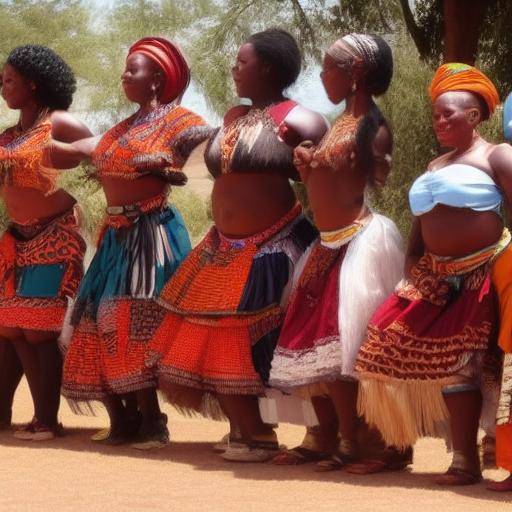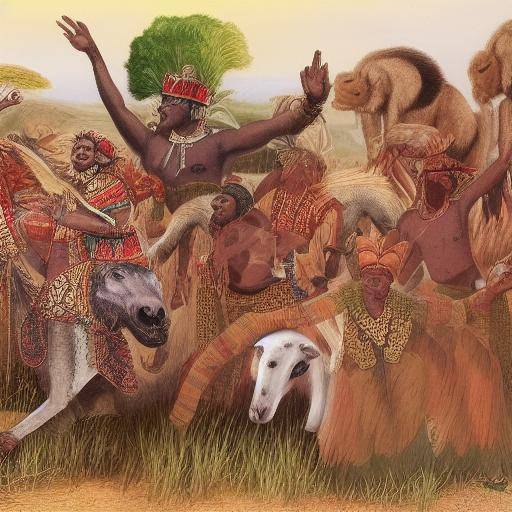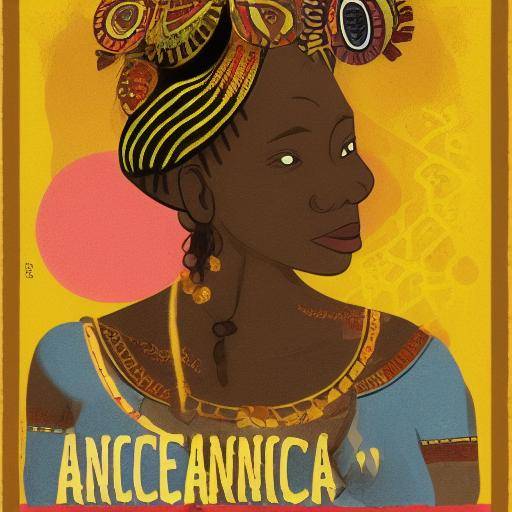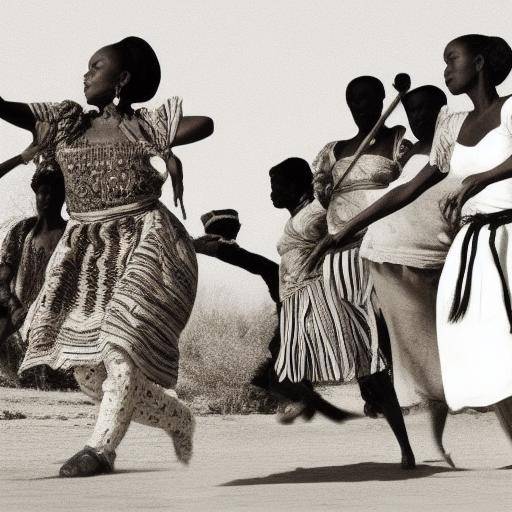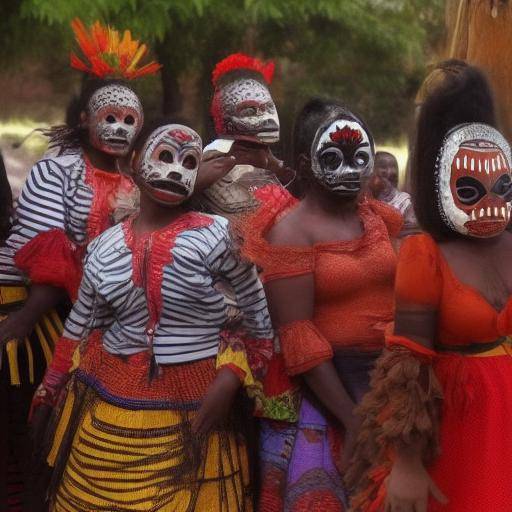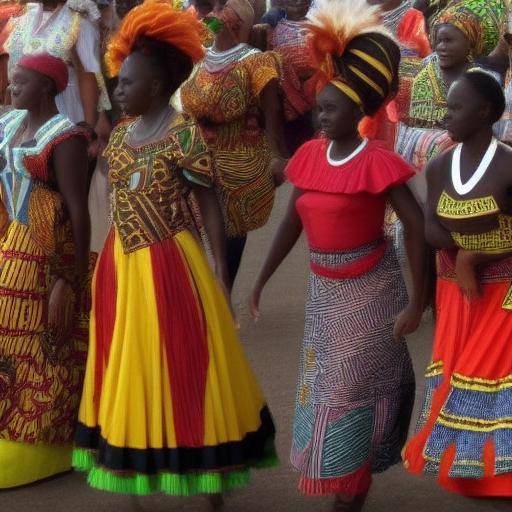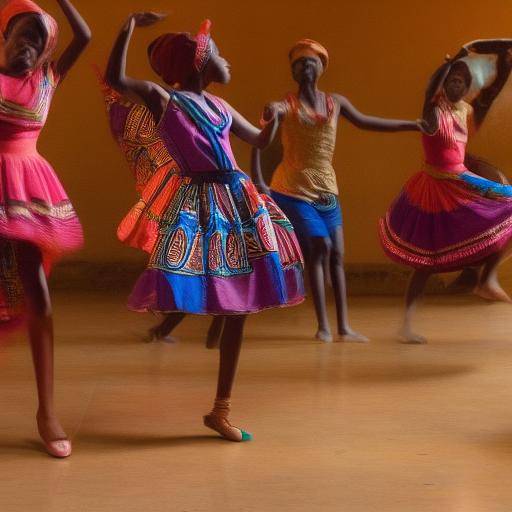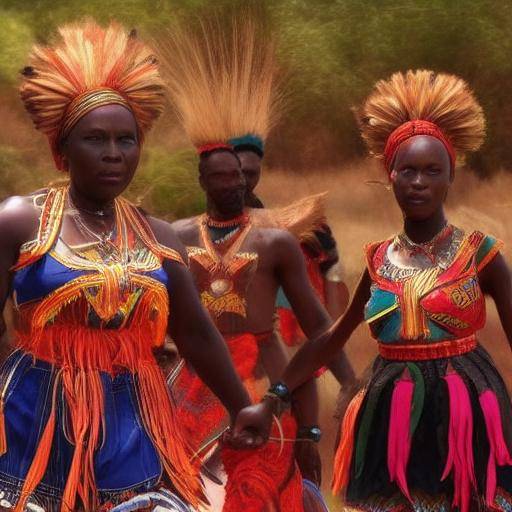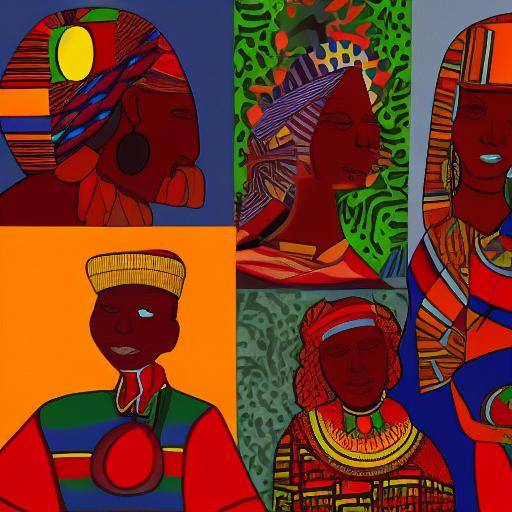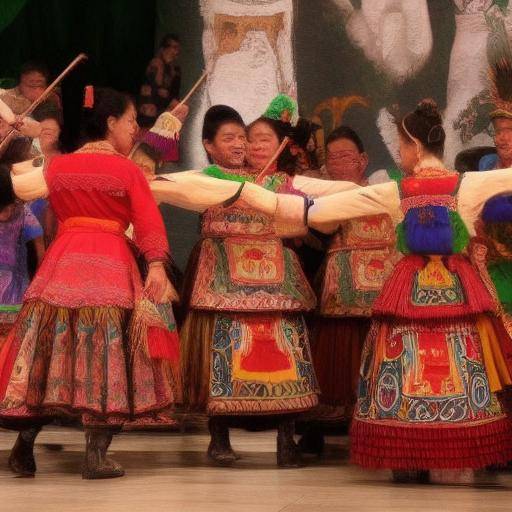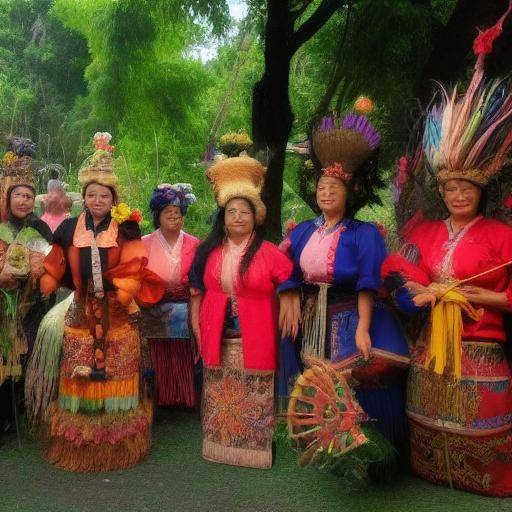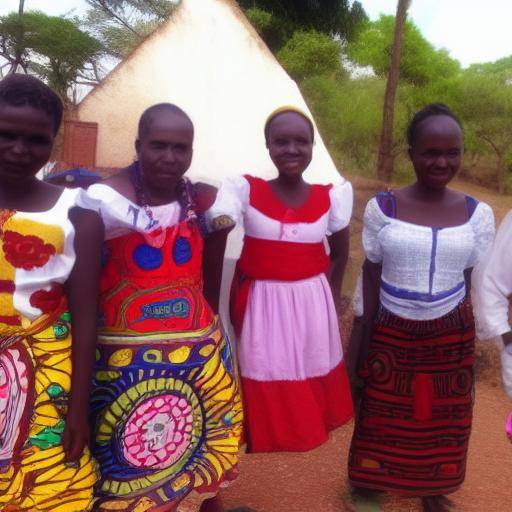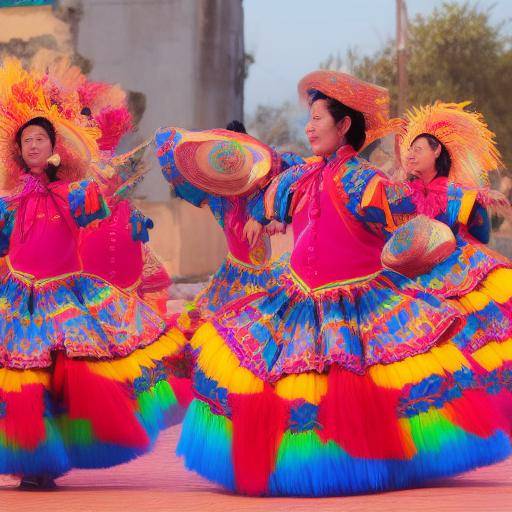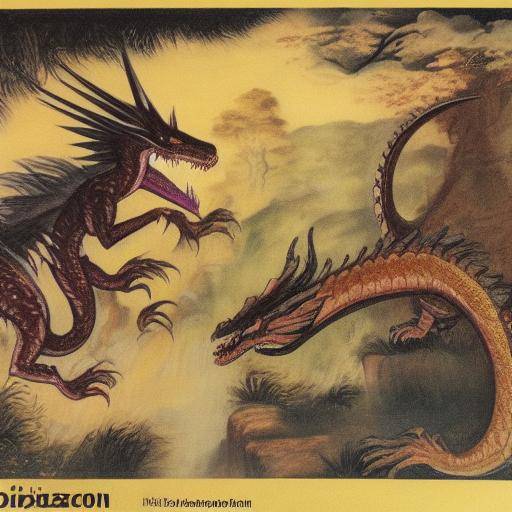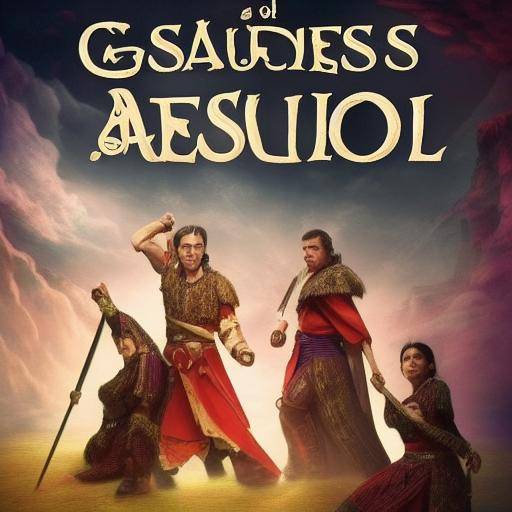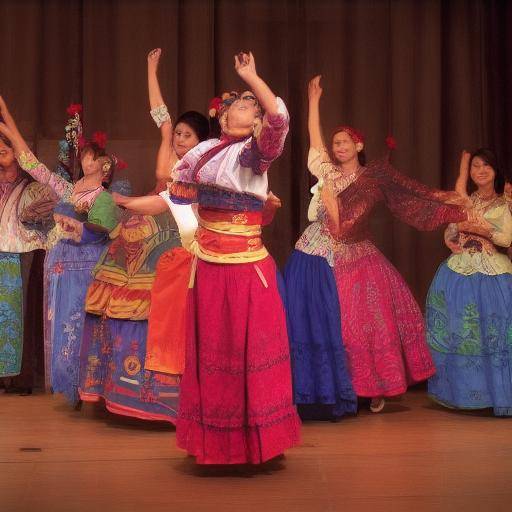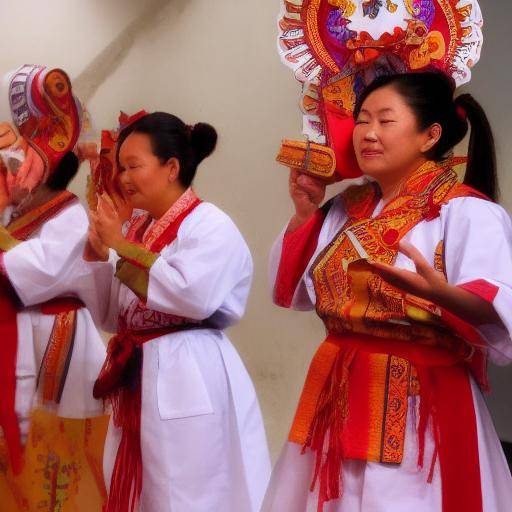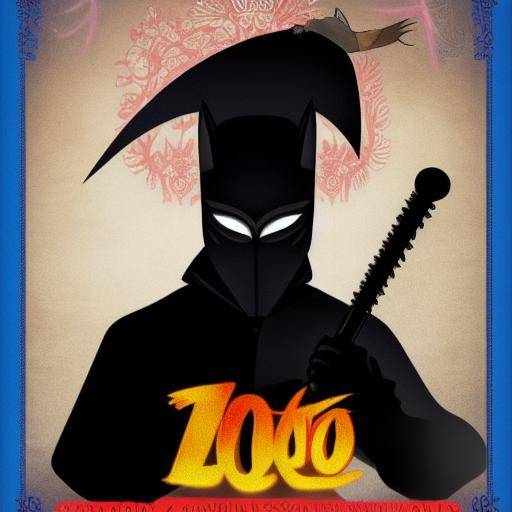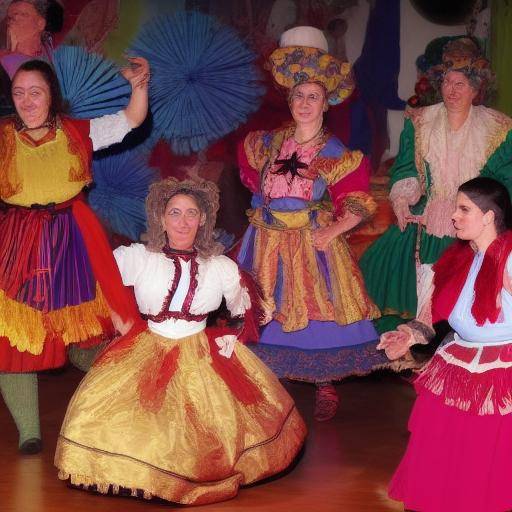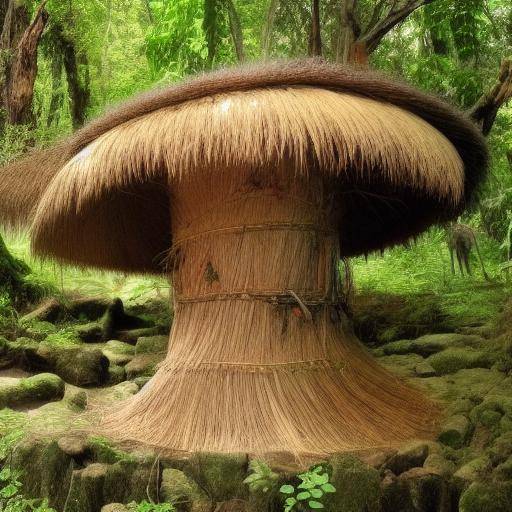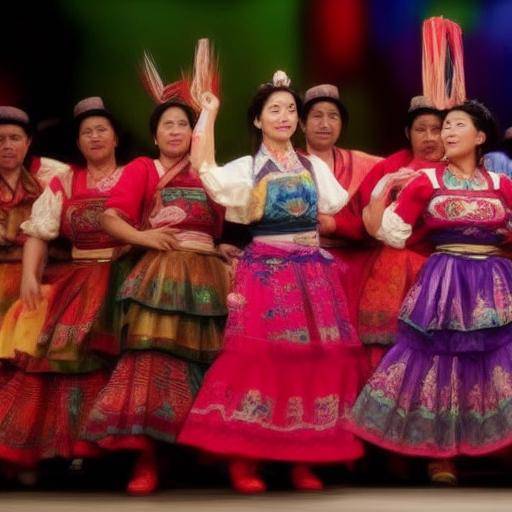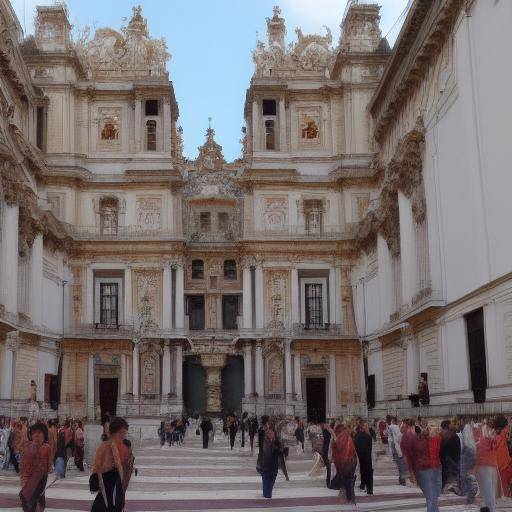
Since time immemorial, humanity has sought to explain the origin of the universe and existence through myths of creation. These narratives, present in all cultures, possess a symbolic and spiritual wealth that reflects the worldview of each society. In this article, we will explore myths of creation in different European cultures, their meanings, the influence of folklore and its relevance in collective history and imagination. Join us on this fascinating journey through the legends and mythologies that have permeated Europe over the centuries.
Introduction
The myths of creation, fundamental pillars of European cultures, have played a crucial role in the formation of collective identities and the transmission of ancestral knowledge. These mythical narratives offer unique visions about the origin of the world, the appearance of the human being, the gods and the primordial forces that govern the cosmos. Through myths and legends, European communities have shaped their values, beliefs and traditions, giving a profound meaning to their existence. This article is immersed in the vast ocean of the myths of creation in Europe, exploring its varied manifestations, its influence on folklore and its transcendence in contemporary culture.
History and Background
European cultures have generated a rich diversity of creation myths that reflect their complex history and worldview. From the Nordic mythology, which narrates the gestation of the world from the clash of giants of ice and fire, to the Greek cosmogony, which intertwines the exploits of gods and titans in the forging of the universe, each tradition possesses mythical accounts intrinsically linked to its identity. These accounts have evolved over time, adapting to cultural and religious changes, but retaining their symbolic power and ability to convey teachings. Exploring the history and development of these myths allows us to understand the depth of their influence in the life and thought of European societies over the centuries.
Analysis in Deep
The myths of creation not only constitute accounts of the origin of the world, but also incite the way in which European cultures have interpreted the nature, human existence and the role of supernatural beings. From the conception of the earth as a mother in Celtic mythology to the idea of the tree of the world in German mythology, these myths offer deep and philosophical perspectives on the relationship between the human being and the cosmos. As we enter into a deeper analysis of these accounts, we discover their ability to reveal essential aspects of the human psyche, as well as to explore complex notions about time, chaos and creation.
Comprehensive review
Deepening in the contemporary relevance of the myths of creation in European cultures, we find their influence on artistic, literary and philosophical expressions. The reinterpretation of these narratives in popular culture, fantastic literature and cinema shows their perennial magnetism and their ability to give inspiration. Its impact on the configuration of daily festivities, rituals and traditions also demonstrates its validity and root in modern life. In considering its practical scope and cultural legacy, a more complete understanding of the influence of creation myths on contemporary European culture emerges.
Comparative analysis
A comparison of the myths of creation in different European cultures reveals both their similarities and their fundamental differences. While some accounts agree on the existence of creative deities, others focus on the struggle between divine and primordial forces. The diversity and complexity of these myths invites us to explore the deep cultural roots of Europe and to appreciate the variety of visions about creation and existence. This comparative exploration allows us to better understand the complex interconnections between the different traditions and the way they have shaped the cultural identity of Europe.
Practical Tips and Accessible Recommendations
Exploring the myths of creation in European cultures can inspire the search for ancestral wisdom, the appreciation of cultural diversity and the promotion of intercultural dialogue. By immersed in these accounts, readers are invited to reflect on the meaning of existence, to value the rich European mythological heritage and to explore the connections between the past and the present. The myths of creation offer timeless teachings about human nature, the relationship with the universe and the importance of preserving the wealth of cultural traditions over time.
Industry Information and Expert Reviews
Experts in European mythology and folklore coincide in the transcendence of creation myths as testimonies of human imagination and fundamental pillars of cultural identity. Their research and analysis provide an enriching perspective on the influence of these narratives in European history, literature and thinking. Their views and reflections reveal the permanent relevance of the myths of creation in the understanding of the world and the configuration of European cultural identity.
Case Studies and Real Life Applications
The myths of creation, far from being obsolete accounts, have found contemporary applications in various fields, from education and psychology to artistic creation and cultural tourism. Studying concrete cases that reflect the influence of these myths in everyday practice and their impact on the development of communities provides a vivid vision of their survival and adaptability. The exploration of these specific applications offers a valuable perspective on the validity of the myths of creation in the twenty-first century.
Future Trends and Predictions
The study and appreciation of the myths of creation in European cultures remain subjects of interest and debate. Current trends point to a greater appreciation of European mythological diversity, as well as the interdisciplinary exploration of its influence on art, popular culture and psychology. Future predictions indicate that the legacy of these myths will continue to exert a profound influence on the understanding of the world and the valuation of European cultural heritage.
Conclusion
The myths of creation in European cultures constitute an invaluable legacy that transcends time and space, enriching our understanding of the world and nurturing the flourishing of culture. These narratives, rooted in millennial traditions, invite us to reflect on human nature, cultural diversity and the perpetual search for meaning. In exploring its vast symbolic universe, we embark on a journey that connects us with our ancestral heritage and inspires us to preserve and value the richness of mythological narratives. The myths of creation in European cultures invite us to contemplate the inexhaustible source of wisdom and inspiration emanating from human imagination.
Frequently asked questions
What is the most known myth of creation in European mythology?
Greek mythology presents one of the most famous myths of creation, starring deities such as Uranus, Cronos and Zeus. This story, embodied in literary works as "Theogony" of Hesiodo, narrates the emergence of the world from the primordial chaos and the gestation of powerful gods.
How have the myths of creation influenced European literature?
The myths of creation have exerted a profound influence on European literature, inspiring masterpieces that explore issues of identity, destiny and conflict between divine and mortal forces. Writers like William Shakespeare, Dante Alighieri and Johann Wolfgang von Goethe have woven mythological elements in their works, enriching the European literary imaginary.
What role do the myths of creation play in the everyday life of European cultures?
The myths of creation have permeated various aspects of the daily life of European cultures, from religious festivities and rituals to artistic expressions and ritual practices. These narratives remain a source of inspiration and reflection in contemporary life, keeping alive the European cultural heritage.
What are the fundamental differences between the myths of creation of different European cultures?
Differences in the myths of the creation of European cultures lie in the protagonist deities, cosmic events described and interpretations of the origin of the world and of humanity. Different mythological traditions reveal the diversity and richness of the cosmogenic visions of Europe.
How have the myths of creation been preserved in European cultures over time?
The myths of creation have been preserved in European cultures through a combination of oral tradition, written records, artistic expressions and ritual practices. The safeguarding and transmission of these accounts has allowed them to perish over generations, continually enriching European cultural heritage.
What is the contemporary relevance of the myths of creation in Europe?
The contemporary relevance of the myths of creation in Europe lies in its ability to inspire artistic creation, promote intercultural dialogue, and enrich the understanding of European history and identity. These narratives continue to be sources of wisdom, imagination and connection with European cultural heritage.
How do the myths of creation influence European cultural tourism?
The myths of creation have exerted influence on European cultural tourism, motivating travelers and scholars to investigate on the sites associated with these mythological narratives. Places such as Mount Olimpo, Stonehenge or the Black Forest are destinations linked to the myths of creation that attract the attention of visitors interested in the mythological wealth of Europe.
Dive into the Universe of the Myths of Creation in Europe!
The myths of creation in European cultures continue to be inexhaustible sources of wisdom, inspiration and reflection. Through his stories, we enter the landscape of human imagination, explore the complexities of the cosmos and connect with the vast cultural heritage of Europe. We invite you to investigate these myths, discover their profound meanings and appreciate their lasting relevance in contemporary life. In this exploration, you will find timeless teachings, aesthetic beauty and an intimate connection with the mythological roots that link us to the very essence of existence.

